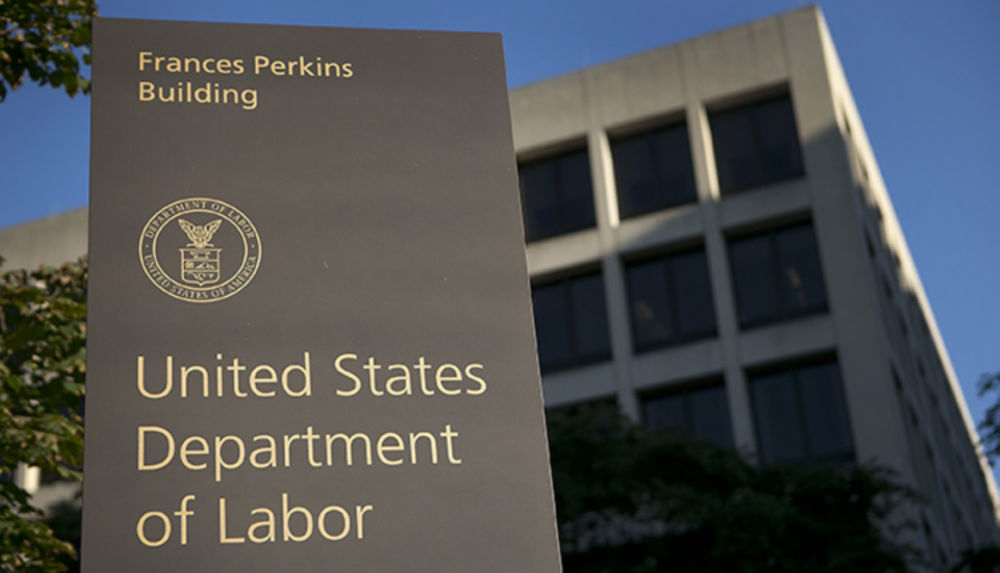In the wee morning hours of March 23—just two hours after the midnight March 22 deadline—Congress completed the fraught process of funding the federal government’s discretionary spending for fiscal year (FY) 2024—six months after FY 2024 began this past October 1. President Biden signed the measure into law the same day. Despite hard lobbying, the final funding package excluded a rider that would have stopped the Department of Labor’s (DOL) work on its fiduciary rule.
Just before noon on March 22, the House approved the bill, now Public Law No. 118-47, by a 286 to 134 vote. Far more Democrats than Republicans voted yes on the bill—112 (out of 214) GOP House members voted against the bill, while 22 Democrats voted no—a result that has caused some trouble for Speaker of the House Rep. Michael Johnson (R-LA). The Senate vote, coming at 2 a.m. March 23 was 74 to 24. This was the second of two FY 2024 government funding packages—the first one, a $460 million measure, was enacted on March 8.
The $1.2 trillion government funding bill largely followed the agreement reached among Congress’ leaders and the President in the Fiscal Responsibility Act (FRA) enacted last summer. It excluded all “poison pill” riders—i.e., any that were controversial. These included, in addition to high-profile riders dealing with abortion, transgender care, funding for government investigations into President Biden and his son Hunter, and others, the riders that would have stopped the proposed fiduciary rule, the worker classification rule, and the rule raising the salary threshold below which the exemption from minimum wage and overtime rules would not apply.
During the House debate on U.S. government discretionary spending for FY 2024, Rep. Marjorie Taylor Greene (R-GA) introduced a motion to vacate the chair, i.e., a motion to oust Speaker of the House Rep. Mike Johnson (R-LA). The motion reflects underlying anger at Speaker Johnson for cutting a deal with Democrats rather than finding unity (or closer to unity) among House Republicans. As of now, there is no public support (although there are reports of private support) for the motion to vacate the chair, but the motion is still pending. It could come up for a vote at any time. Like the motion to vacate that ousted former Speaker Kevin McCarthy (R-CA) last year, if this motion succeeds, it will stymie virtually all House action until a new Speaker can be chosen.
Over the next few weeks, Speaker Johnson faces a number of tests within his GOP Conference—including a long-sought measure to provide aid to Ukraine, reauthorization of the Federal Aviation Administration (FAA), and now, possibly, federal funds to rebuild the collapsed bridge in Baltimore that is crucial to shipping and a smoothly-operating supply chain. To the extent Speaker Johnson must rely on Democratic votes on any of these priority issues, the motion to vacate the chair, if successful, could bring legislative activity to a halt. And it would take virtual unanimity among Republican House members (there is only one vote to spare currently) or help from Democrats (virtually unheard of in votes to elect a House Speaker) to pass any legislation, and/or to defeat the motion vacate the chair. So, pre-November election politicking and deep, bitter partisanship spell real discomfort for the next few weeks (or months) in the House of Representatives.
Prospects: There appears to be little possibility for defunding DOL work on the fiduciary rule (or other rules of concern to NAIFA members—including, for example, the new short-term limited-duration health insurance rule or the worker classification rule). To be sure, supporters in Congress may offer a Congressional Review Act (CRA) motion to block the fiduciary rule once it is finalized, but even if such a motion were to pass Congress (and with the Senate controlled by Democrats, that seems unlikely), President Biden is sure to veto it.
NAIFA Staff Contacts: Diane Boyle – Senior Vice President – Government Relations, at dboyle@naifa.org; or Jayne Fitzgerald – Director – Government Relations, at jfitzgerald@naifa.org; or Michael Hedge – Senior Director – Government Relations, at mhedge@naifa.org.






.png?width=600&height=90&name=Support%20IFAPAC%20%20(600%20%C3%97%2090%20px).png)
